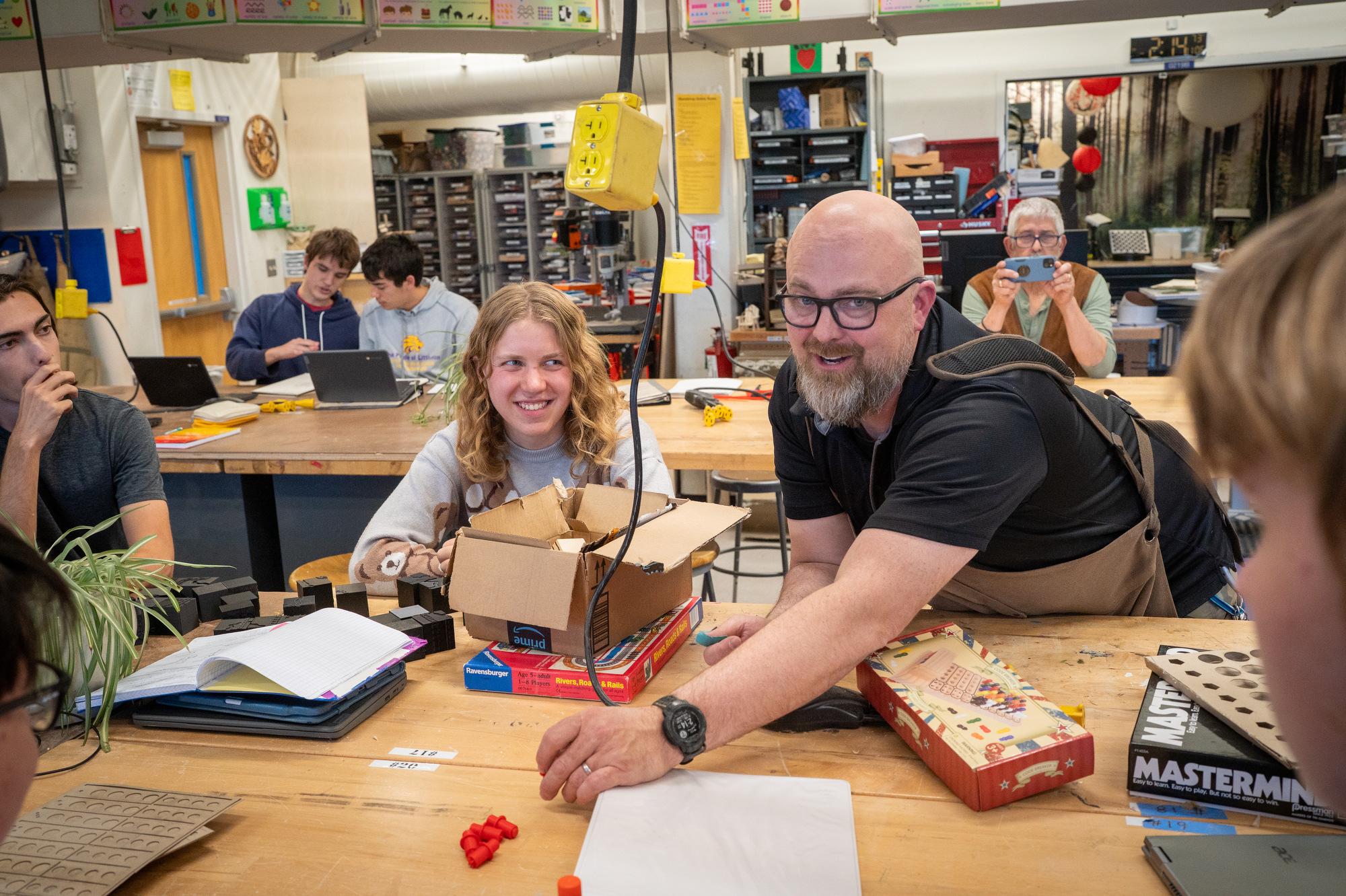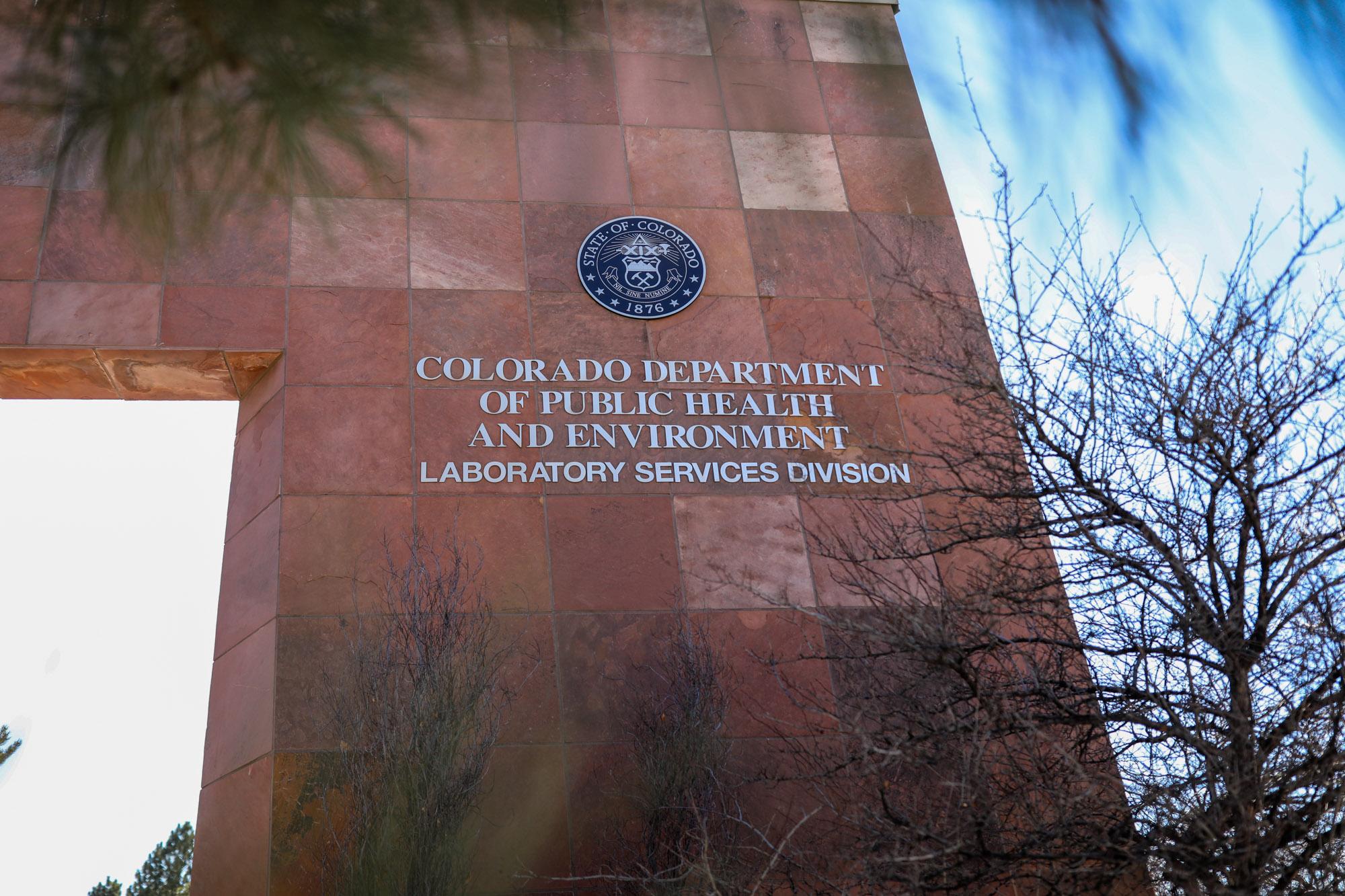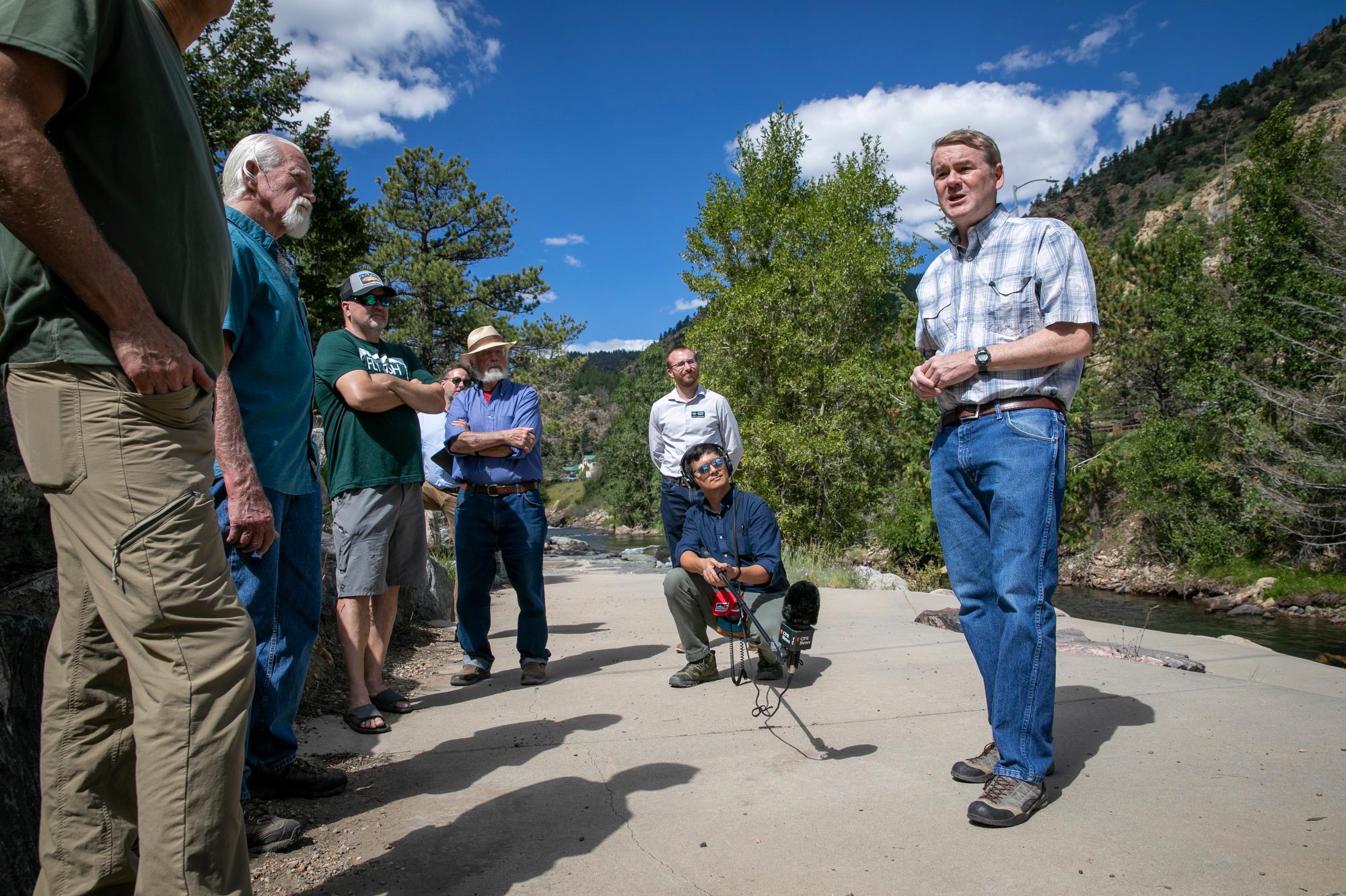
With a small notepad in his back jeans pocket, Democratic U.S. Sen. Michael Bennet drove to several counties in Colorado Tuesday to hear from residents affected by wildfires, mudslides, drought and other calamities worsened by climate change.
Bennet, who recently announced his re-election campaign, booked the road trip to promote the Outdoor Restoration Partnership Act, which he is co-sponsoring with fellow Democrat Rep. Jason Crow. The bill would allocate $60 billion in federal funds to protect forests, watersheds and surrounding communities from wildfires and other destructive events.
The tour included stops in Denver and Clear Creek, Grand and Routt counties, where he met with local elected officials, ranchers, foresters and business owners.
“I have never felt more urgent about climate change than I did this summer,” Bennet said from a family ranch outside of Kremmling. “It is happening right now, it is affecting our health here in Colorado today, it is affecting our economy here.”
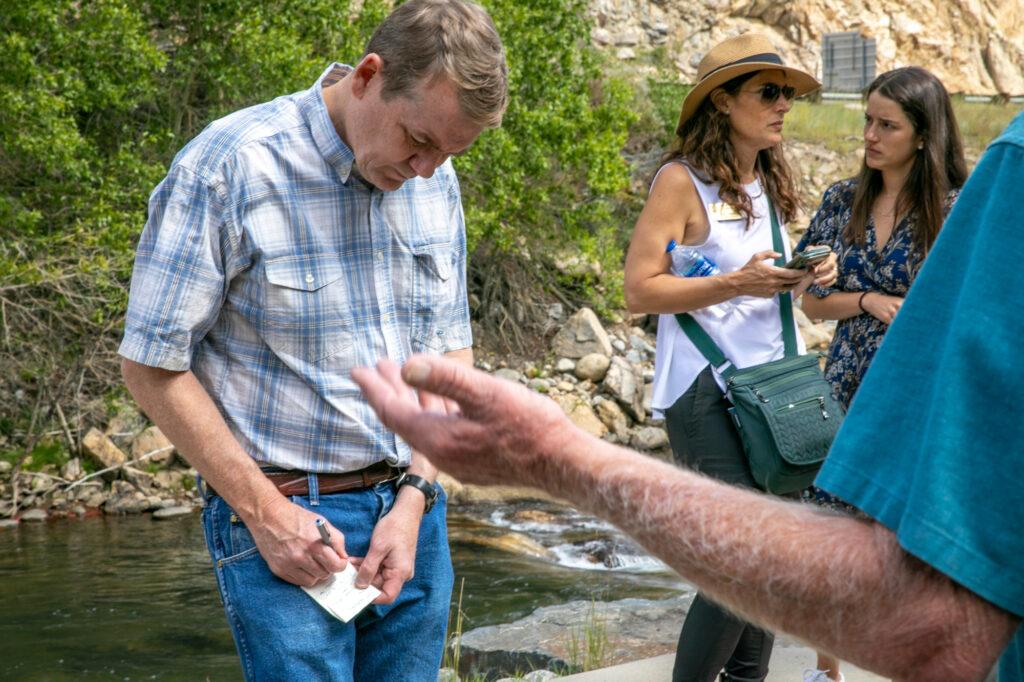
Bennet gave a similar pitch at each stop: Colorado was hit by the three largest wildfires in state history last year. Mudslides and hazy skies are now routine. Sixty billion dollars may sound like a large amount of money, he told the groups, but the country already spends billions fighting wildfires.
Each county’s problems were different but connected. The owner of a rafting company in Clear Creek County told Bennet fires had muddied the rivers where she took her clients. Ranchers near Kremmling told the senator they were frustrated by having to cut back on water for their hayfields because of drought.
From a mountain overlooking Steamboat Springs, rancher Jay Fetcher told Bennet that the U.S. Forest Service had not felled trees killed by pine beetles on federal land. Those dead trees pose a danger to his cattle and can fuel wildfires if they’re not removed.
The Senate’s $3.5 trillion reconciliation proposal includes the Outdoor Restoration Partnership Act. A majority of the funding outlined in Bennet’s bill would go toward projects that cross between jurisdictions, such as thinning forests, removing invasive species like cheatgrass and reintroducing low-intensity fires in areas where fires are common.
The bill would also offer grants to expand the public’s access to outdoor areas. Clear Creek County Commissioner Randall Wheelock told Bennet he was concerned the legislation would increase the surge of tourists who started clogging nearby mountains after the start of the coronavirus pandemic.
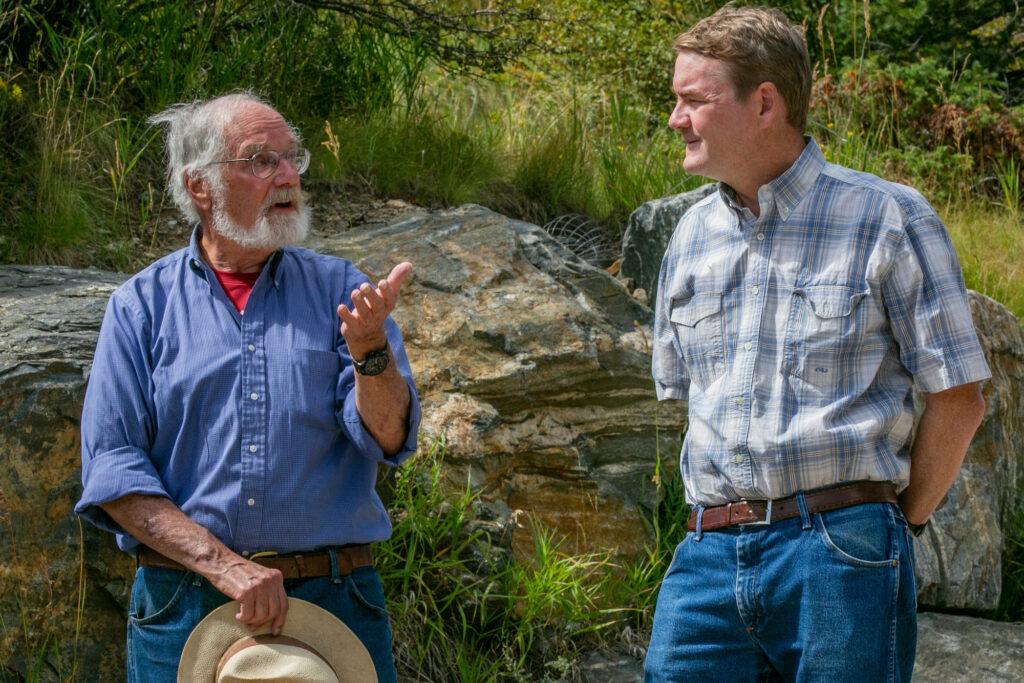
“We’re dedicated to the proposition of quality expansion, but in some cases improving means reducing the access,” he told Bennet, who pulled out the notepad from his pocket and jotted down the local official’s suggestions.
U.S. Rep. Joe Neguse is pushing his own proposal for a 21st Century Civilian Conservation Corps, which would spend billions on hiring young people to work on public land projects. It’s unclear if both proposals — or either — can pass a gridlocked Senate.
Bennet said he hopes the massive wildfires in the West convince his Beltway colleagues to keep the bill in the final version of the reconciliation package, which the Senate is expected to deliberate in September.
“One thing that’s benefiting us is that the smoke from California actually made it all the way east,” he said. “I think people saw it, smelled it in Washington and New York, and that’s helping our case.”
More, on how climate change is impacting Colorado:
CPR’s coverage of Colorado’s congressional delegation focuses on accountability and on providing information constituents need to live their lives. Read more about our priorities here.

